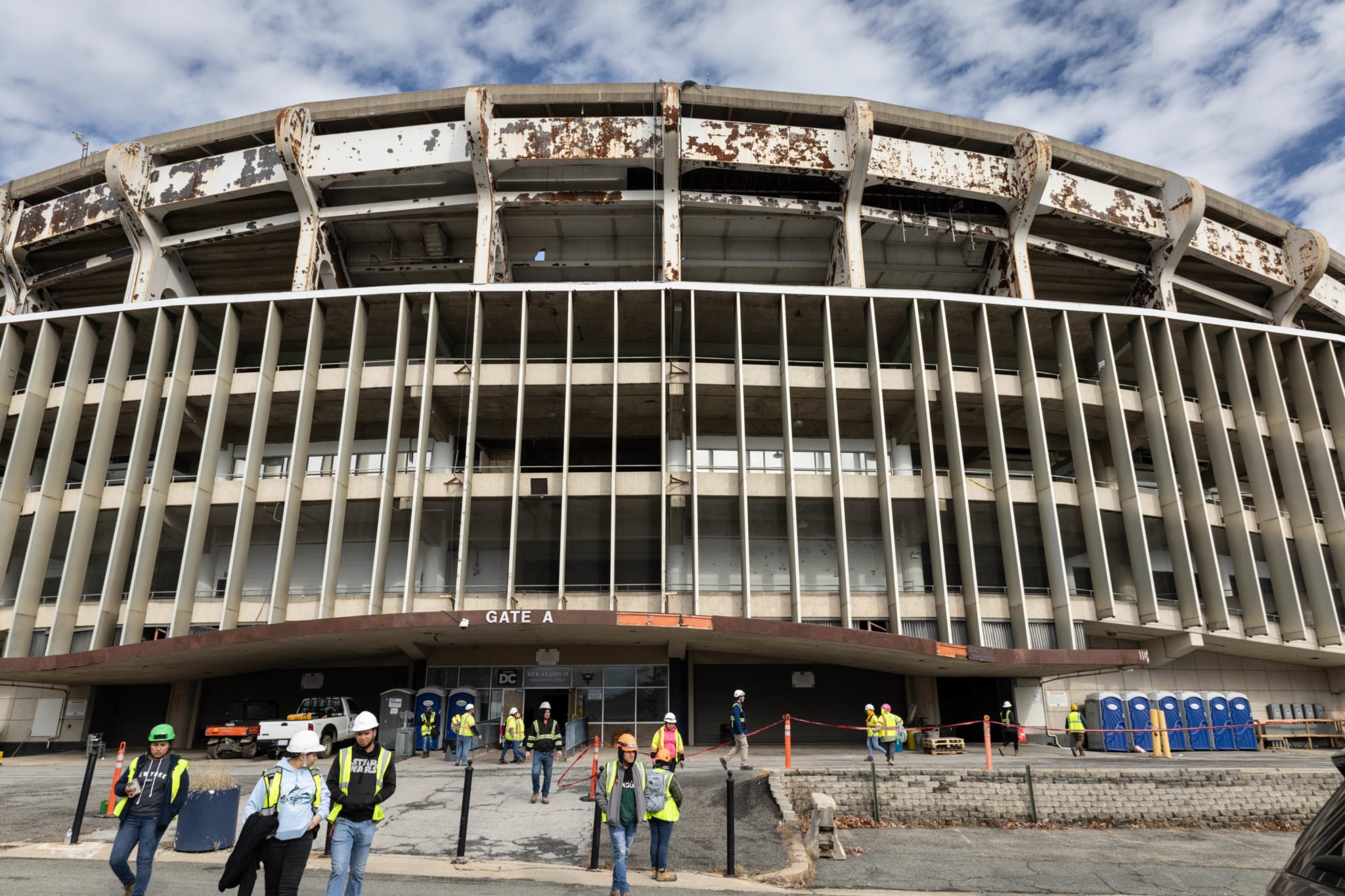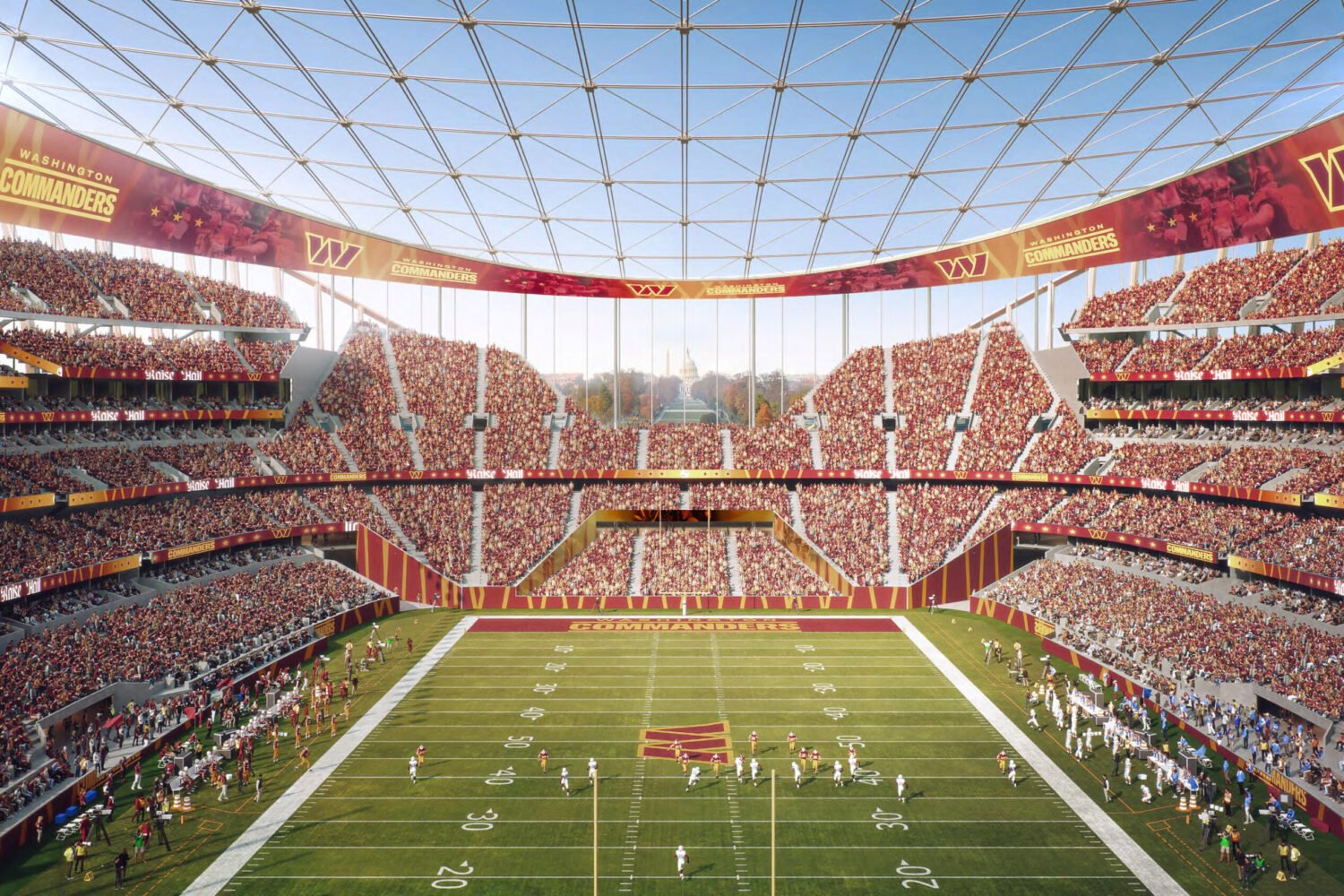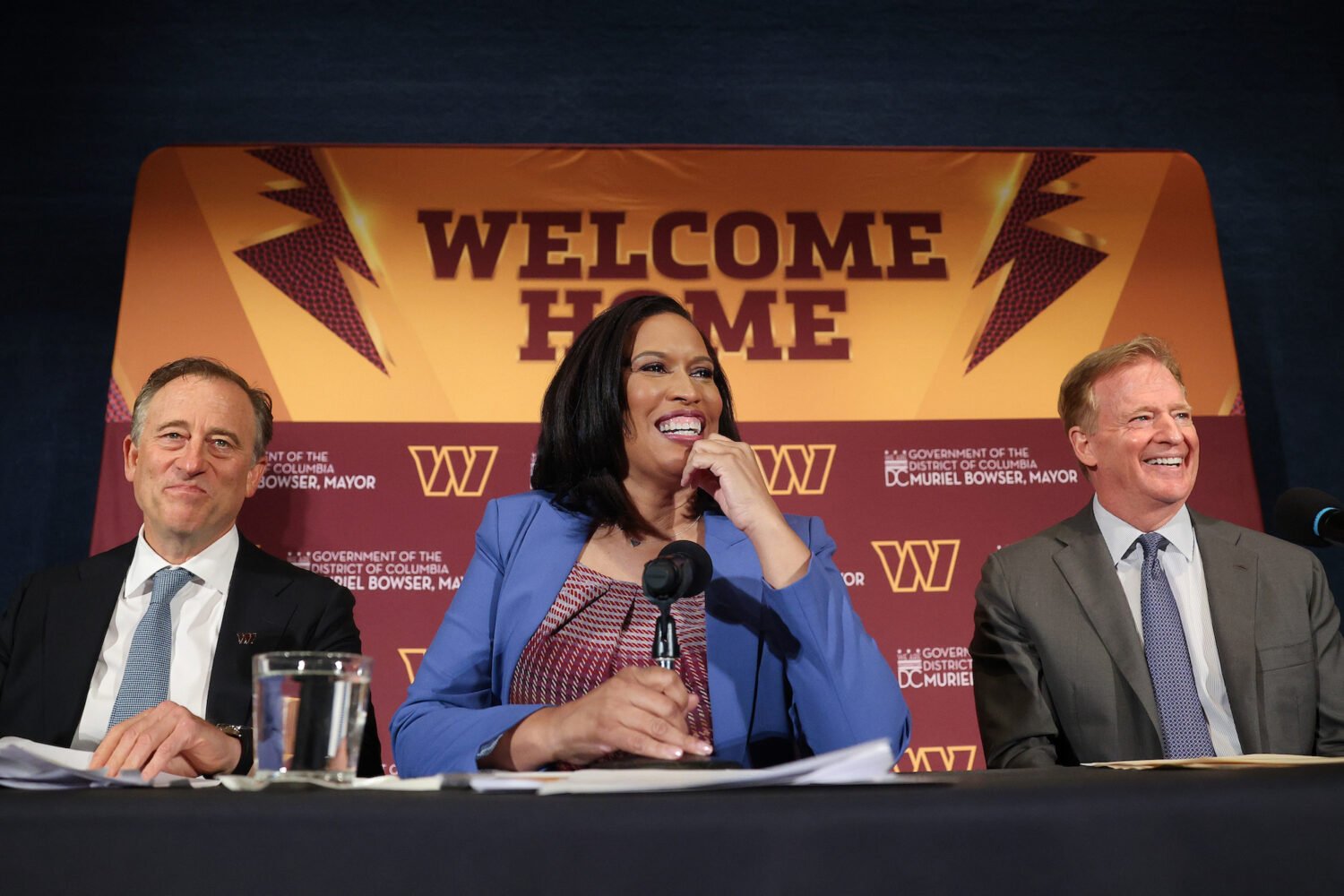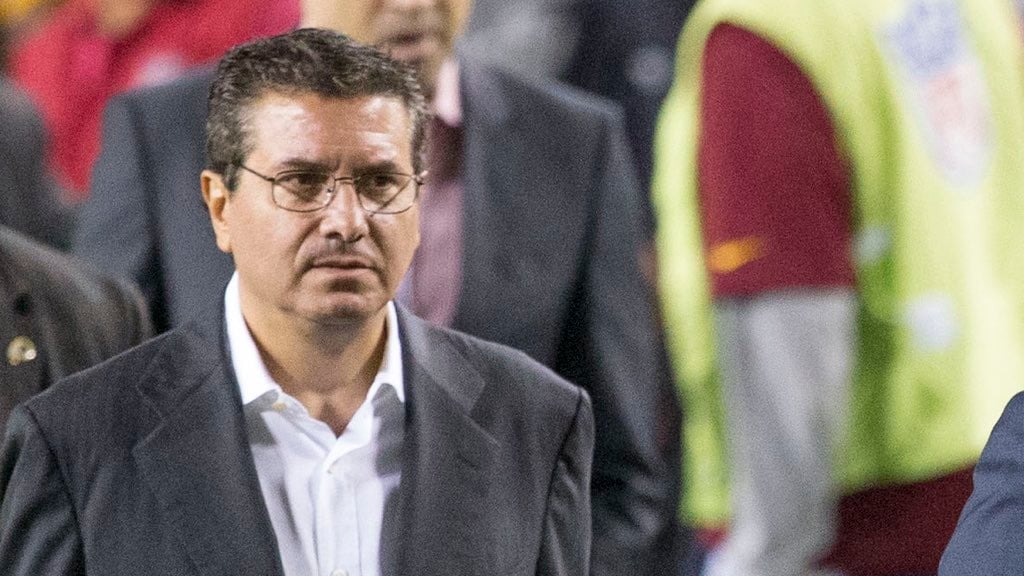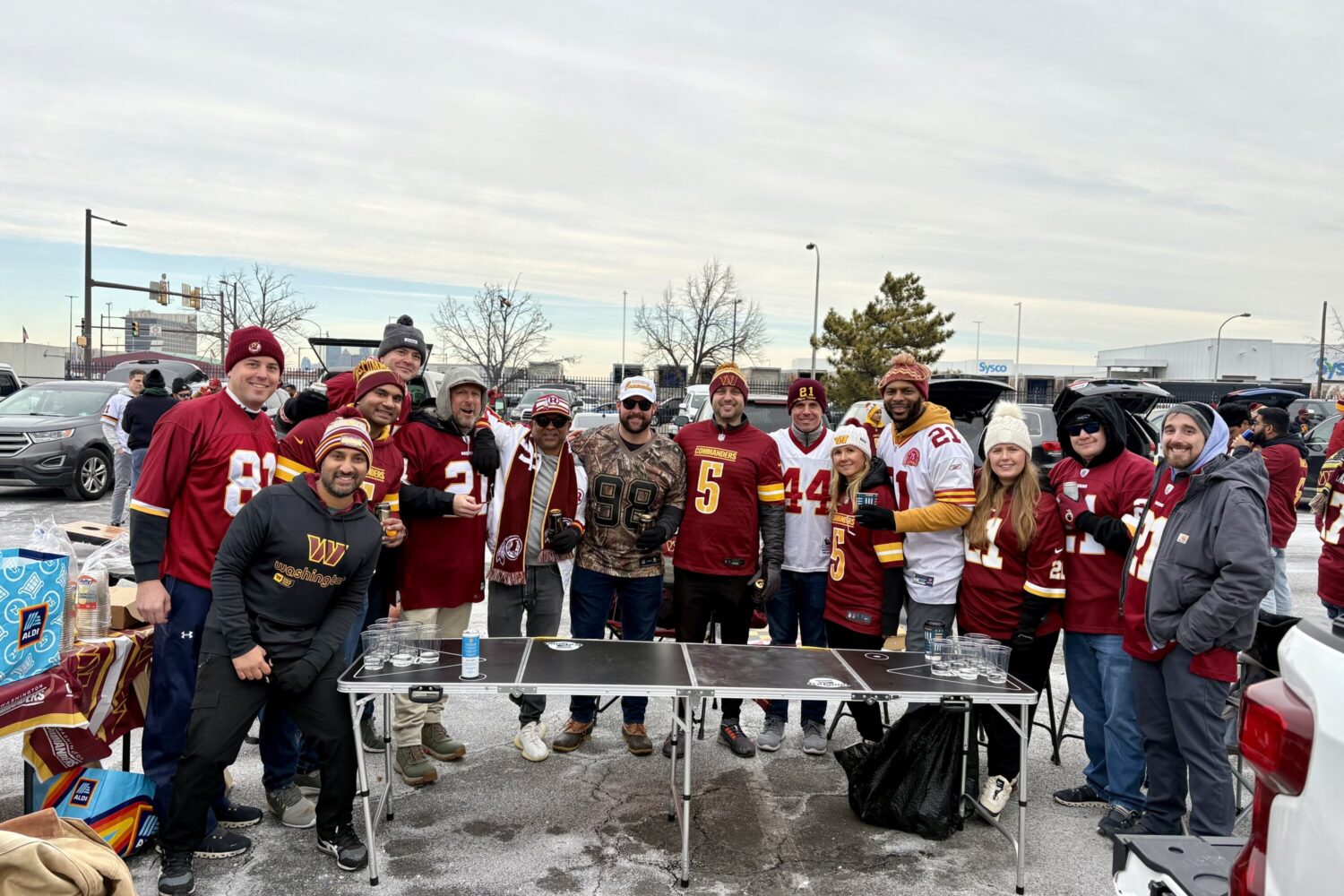It’s no secret that the Washington Commanders are looking for a new home—and that Mayor Muriel Bowser is interested in bringing them back to DC via a new stadium built on the site of the team’s old RFK Stadium digs.
Of course, a lot has to happen before that can happen. First, the federal government needs to transfer control of the RFK campus land to the city; a potential deal to get that done is currently being negotiated in the Senate, and corresponding legislation could be passed by the end of the year. If and when that occurs, DC could then formally work with the Commanders to build a new football stadium and otherwise redevelop the site.
A Washington Post poll last spring found that a slight majority of area residents—and large majority of District residents—want the next Commanders stadium in DC. But how do people who live near the RFK campus feel? That’s a bit more complicated. Sitting in the heart of Ward 7, the site is surrounded by residential neighborhoods. Some residents welcome a new stadium; others worry about problems it could create.
To better understand their hopes and concerns, Washingtonian spoke to Chander Jayaraman, a Hill East resident and former ANC6B Commissioner and chair who is in favor of a new stadium, and Ebony Payne, ANC7D Commissioner and a former Ward 7 City Council candidate who is against it. Here’s what they had to say:
Build, baby, build
Jayaraman used to be against a new stadium. He was frustrated with former team owner Dan Snyder, and concerned that a RFK replacement would have a negative impact on his neighbors.
But no longer. Jayaraman believes that new Commanders owner Josh Harris will invest not only in a new place to play football games, but also in the surrounding community. His attitude has shifted, in part, alongside that of his former constituents—some of whom, he says, are confident that a new stadium will increase neighborhood property values through greater development of recreational facilities on the RFK site and other businesses and amenities in the surrounding area.
Currently, there are temporary fields on the RFK campus that residents hope will remain or be expanded upon. Plans for a new stadium and the rest of the land are far from finalized, but Bowser envisions a mixed-use campus that integrates the team’s home with surrounding elements and the neighborhood.
Jayaraman supports that vision. “It’s possible to build a stadium with a smaller footprint, where you can balance out the desire for some folks to tailgate while others just want to see the game,” he says. “So if you can limit the amount of surface parking, you can still have other development on the land which includes housing and recreation facilities. It includes the realization of a vision where the fields are meant to be a multi-sport area, where people not just from the city but from the region can come for different kinds of competition.”
Jayaraman’s enthusiasm isn’t entirely centered on development. A longtime local sports fan, he also thinks the Commanders should come home: “They’re Washington, they’re not Virginia. They’re not a Maryland team—Maryland already has a team. They are the Washington Commanders. So, let’s bring them back to the city.”
Just say no
Ebony Payne, ANC7D Commissioner and former Ward 7 City Council candidate, has been staunchly against a new Commanders stadium. In June she was the runner-up in the council race to succeed Vincent Gray, but she won the precincts surrounding the stadium.
Like other stadium opponents, Payne worries about increased traffic, litter, and noise that almost certainly would accompany a new Commanders home. “I can tell you that in my community, we don’t want to be looking at parking garages,” she says. “The parking is a very big concern. The traffic is a huge concern. The crime is a concern. The team seems to be listening to us better than city officials, but it doesn’t erase these problems.”
Payne is also concerned that a RFK campus revamp could mean the removal of the temporary sports fields, which were created in 2019. “During my campaign I was very vocal about keeping the fields because when we had the mayor speak to the community, she said they were always meant to be temporary,” Payne says. “That raised a lot of alarm bells in the community.”
While anti-stadium, Payne is in favor of DC controlling the RFK campus land—which she’d like to see used for housing and amenities like recreation centers. “The city really needs control over the land,” Payne says. “Regardless of whether you are for or against the stadium, if you want to see housing, the Senate bill has to pass. But, there are a lot of people who feel like the timing of it is really just for the purpose of building a stadium and nothing else.”
Should the federal government end up transferring control, Payne wants to “ensure that the community’s voice is heard throughout this entire process. Ultimately, it’s our neighborhood and I think we should have a say in how this could impact us.”

